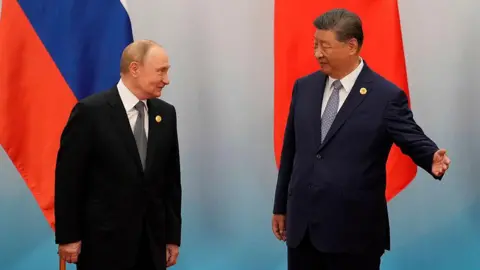Adidas has recently reported that it faces an additional cost burden of €200 million (£173 million) due to tariffs on goods imported from Asian countries, particularly Vietnam and Indonesia, which constitute nearly half of its production. During a press briefing discussing the company’s financials, CEO Bjorn Gulden acknowledged the seriousness of the situation, noting that the tariffs are likely to increase costs significantly for products intended for the US market.
The tariffs, set at 20% for Vietnam and 19% for Indonesia, follow new trade agreements made by the US to foster local manufacturing. This decision impacts US companies importing Adidas goods, who will have to absorb these additional charges. Although Adidas continues to perform well, with reported sales increasing by 7.3% to €12.1 billion in the first half of the year, the looming inflation concerns due to tariffs bring uncertainty to consumer demand moving forward.
Gulden indicated that despite the potential for inflation affecting sales, management remains focused on navigating these challenges. In fact, while Adidas grapples with tariff-related issues, its competitor, Nike, has already announced similar price increases in anticipation of tariff costs, estimating an additional financial burden of approximately $1 billion (£730 million).
In the wake of rising tariffs, other sectors, including automotive manufacturers like Mercedes-Benz and Porsche, have also shared their experiences, indicating significant profit reductions and price hikes in response to increased import taxes. The ongoing trade tensions continue to create ripple effects across various industries, prompting many companies to strategize effectively to mitigate the critical financial impacts.
The tariffs, set at 20% for Vietnam and 19% for Indonesia, follow new trade agreements made by the US to foster local manufacturing. This decision impacts US companies importing Adidas goods, who will have to absorb these additional charges. Although Adidas continues to perform well, with reported sales increasing by 7.3% to €12.1 billion in the first half of the year, the looming inflation concerns due to tariffs bring uncertainty to consumer demand moving forward.
Gulden indicated that despite the potential for inflation affecting sales, management remains focused on navigating these challenges. In fact, while Adidas grapples with tariff-related issues, its competitor, Nike, has already announced similar price increases in anticipation of tariff costs, estimating an additional financial burden of approximately $1 billion (£730 million).
In the wake of rising tariffs, other sectors, including automotive manufacturers like Mercedes-Benz and Porsche, have also shared their experiences, indicating significant profit reductions and price hikes in response to increased import taxes. The ongoing trade tensions continue to create ripple effects across various industries, prompting many companies to strategize effectively to mitigate the critical financial impacts.


















